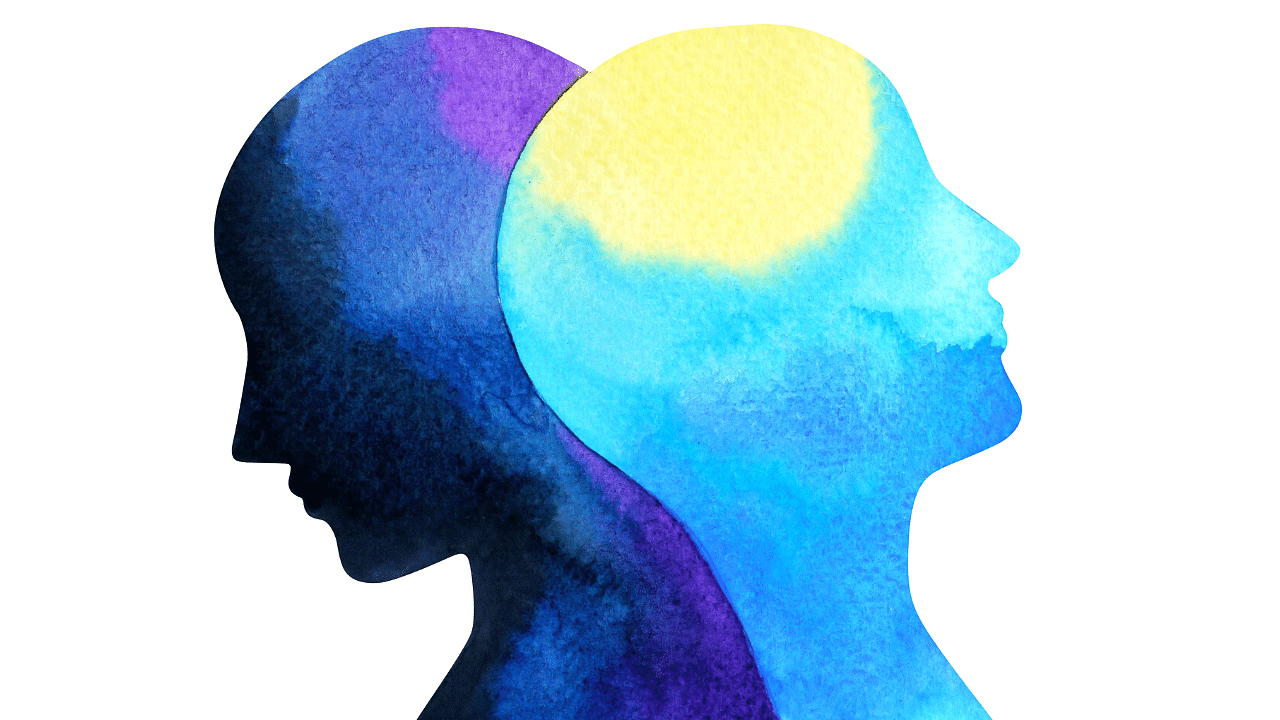
The reported cases of both severe and common mental health disorders in Bengaluru have been spiking, shows data from the state government.
Data available on the Centre's open data platform data.gov.in shows that cases of severe mental disorders, such as schizophrenia, increased from 7,601 in Bengaluru 2018-19 to 10,718 in 2020-21. That is an increase of 41 per cent. The data comes predominantly from government health facilities including primary health centres and hospitals.
The increase is much higher in the case of common mental disorders like depression and anxiety over the same period -- 74 per cent. The numbers went up from around 25,600 in 2018-19 to nearly 35,000 in 2019-20, and then to 44,655 in 2020-21.
Dr Vikram Arunachalam, consultant psychiatrist at the National Mental Health Programme, BBMP, attributes the rise to two reasons -- improved identification of disorders, and increase in mental health issues since Covid.
Since the establishment of District Mental Health Programme (DMHP) in Bengaluru in 2016, PHC doctors are being trained to identify mental illnesses, says Dr Arunachalam.
"We are also creating awareness among adolescents about common mental illnesses, and have placed counsellors in educational institutions and workplaces."
These counsellors and government doctors are now identifying mental illness that might have been missed otherwise, and also uploading the data on the DMHP portal, says Dr Arunachalam.
He adds that disorders like anxiety, depression and substance use have increased since Covid. "Data from the National Crime Records Bureau showed that suicide rates have also increased, which may be directly or indirectly related to Covid." He says it is too early to predict the long-term mental health consequences of Covid, but some trends are evident.
"Academic decline, relationship issues and online game addiction are seen among children. Substance use has increased among adults, especially those who worked from home. And while some have dealt with the loss and grief during Covid, some others still have post-traumatic stress disorder (PTSD), and would require long-term follow up."
So far, the government has not compiled data separately on the mental health impacts of Covid in the state.
Despite the increase in reported cases, the treatment gap still remains huge in Bengaluru, says Dr Arunachalam. Common mental disorders like anxiety, depression and OCD are usually prevalent in 25 to 30 per cent of the general population, for example.
But the 44,655 cases reported from the government sector in Bengaluru accounts for less than one per cent of the city's population.
The reporting of severe mental disorders like schizophrenia are similarly low compared to the usual prevalence of 1 to 2 per cent in the population.
Dr Aravind B A, associate professor at the Department of Epidemology, Nimhans says, "When people speak about mental illnesses, they imagine someone not in touch with reality. But those are severe mental disorders whose prevalence is very low in the population. On the contrary, depression and anxiety are very common. In big cities like Bengaluru, they are prevalent in 13-14 per cent of the population. This is followed by substance use, mainly tobacco and alcohol."
Yet, compared to other districts, reporting seems better in Bengaluru. In 2020-21, the district accounted for 15 per cent of all common mental disorders reported from the state. Whereas several districts like Bagalkot and Bidar contributed to only 1 per cent each of the reported cases.
Dr Arunachalam estimates that the treatment gap for mental illnesses in Bengaluru would still be 70 to 75 per cent. He says that training more physicians on mental illnesses, strengthening psychiatry as part of the medical curriculum, etc., could help fix the treatment gap in the long term.